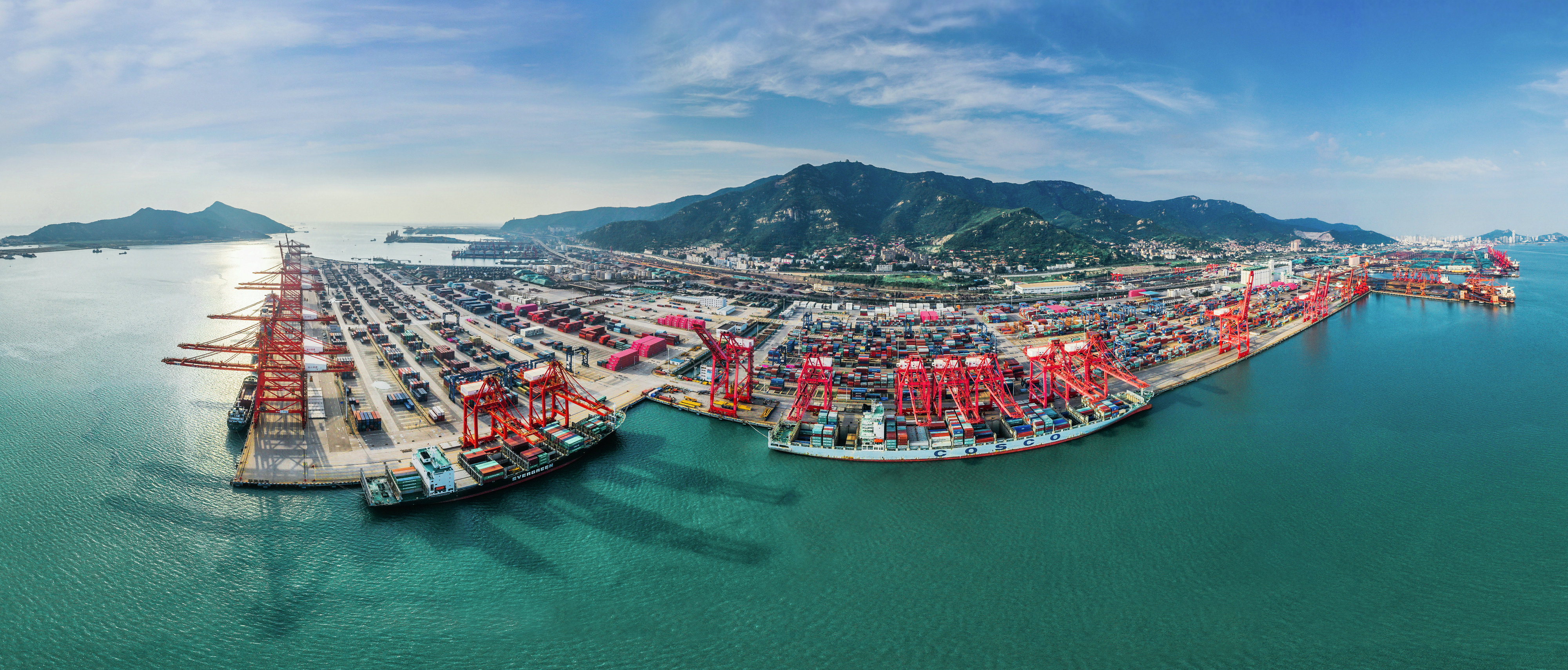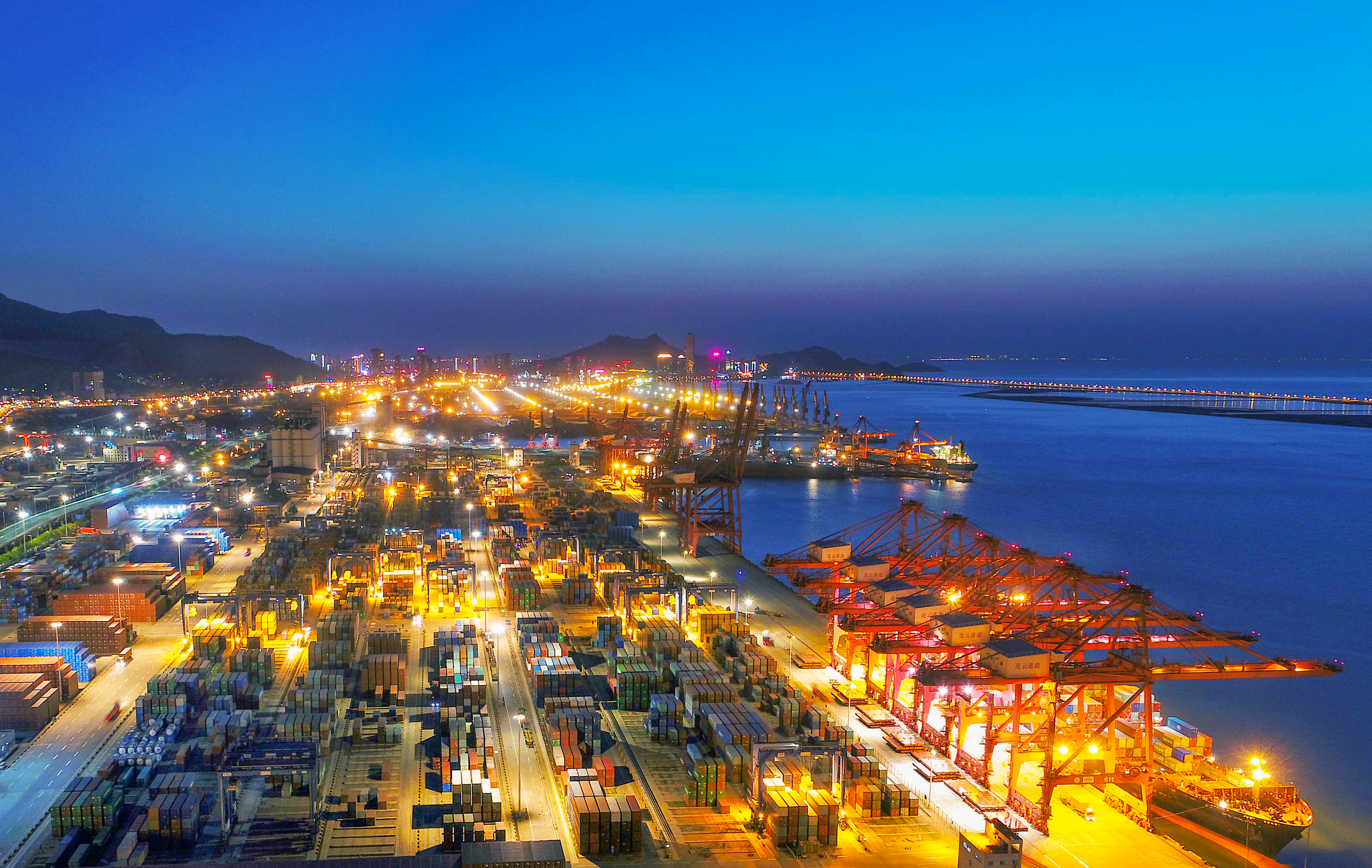The year 2024 has witnessed Jiangsu’s concerted efforts in reform and opening up in line with the important instructions of General Secretary Xi Jinping that Jiangsu must take an exemplary lead in advancing Chinese modernization. Reform tasks were carried forward following tailor-made plans, and high-standard opening up was expanded as Jiangsu continued to develop itself as a BRI hub and a hub of two-way openness with global appeal to foster new competitive edges of an open economy with a higher degree of openness.
Deepen Reform Comprehensively
New reform achievements were made across various sectors. Jiangsu was among the first in China to roll out a provincial-level task list to facilitate the development of a unified national market. Steady progress was made in building a social credit system. To faster the pace of market integration of the Yangtze River Delta region, the work plan Key Measures to Promote Market Integration of the Yangtze River Delta Region (2024-2025) has been jointly put forward by Jiangsu Province, Zhejiang Province, Anhui Province and Shanghai City. To further deepen reform of state-owned enterprises, the province established the Jiangsu Data Group and gained approval for setting up the Jiangsu Rural Commercial United Bank. The specialized integration of Jiangsu SOHO Holdings Group also progressed at a faster pace. Reform in key areas such as tax and finance, natural resources, ecological preservation, and people’s wellbeing all made sound progress. Several measures were rolled out to bolster the private sector, and greater efforts were made to coordinate more financing resources for small and micro enterprises. Jiangsu was the first in China to establish a key private investment-funded industrial projects bank, initially including 200 projects. Over RMB 300 billion in tax or fee cuts or tax refunds was issued to support technological innovation and the development of the manufacturing sector.
Business environment saw continuous improvement. The 2024 List of Reform Items for Improvement of Business Environment specified 85 reform tasks to be accomplished. Guided by the overall action plan, tailor-made task lists were put forward by all 13 prefecture-level cities and concrete measures were implemented across various sectors. Through coordinated efforts as such, Jiangsu sought to make improvement in five key areas, policy design, market regulation, administrative services, the rule of law, and social-cultural environment. To further improve government services, Jiangsu Provincial People’s Government has rolled out the Implementation Opinion on Strengthening Government Competence to Improve One-stop Administrative Services as the guidance. So far, the 13 items identified by the State Council in the first group and eight items in the second group have already been addressed. On top of that, work to improve eight other service items specific to Jiangsu’s context have also been accomplished. Building of online platforms for administrative services was strengthened to ensure that frequently demanded services at the primary level are available on one integrated platform, with the result that 45 specific matters under 30 most frequently demanded administrative services, including social insurance and health insurance, can be handled via one platform. The platform has now been expanded to cover all 1,237 counties (sub-districts) in Jiangsu to the benefit of users at the primary level. A provincially unified database for all operating entities has been established to eliminate the need for repeated registration. The database has seen the registration of 14.632 million entities so far. More services are now available on the comprehensive service platform for businesses and a provincial-level specialized tax service platform has been open. Five cities, namely Nanjing, Suzhou, Wuxi, Nantong, and Yangzhou, have been included in the First National Exemplary Cases of Full-coverage Urban Digital Transformation. Notably, Suzhou has piloted digital RMB trials to facilitate business development to great effect, and Yangzhou has rolled out multiple measures to advance the building of a “Credible Yangzhou”, a project aiming to create a pro-business environment. Both cases have been singled out by the General Office of the State Council as good references for improving business environment.
Further Expanding High-standard Opening Up
Jiangsu’s open economy maintained steady growth with improved quality. The province advanced five key initiatives: expanding the international comprehensive transport system, deepening international industrial capacity cooperation, boosting Silk Road trade, upgrading key overseas cooperation parks, and developing cultural exchange brands. The trade volume between Jiangsu and BRI partner countries reached RMB 2.67 trillion, up by 10.8% year-on-year. The number of China-Europe Railway Express trains in service grew by 7.7% to 2,286. China-Kazakhstan Logistics Cooperation Base is now connected to ocean trunk lines and major deep-water ports. An additional 15 projects were signed to be implemented in China-UAE Industrial Capacity Cooperation Demonstration Zone. The total number of companies in Cambodian Sihanoukville Special Economy Zone grew to 190. Actual use of foreign capital in Jiangsu amounted to USD 19.05 billion, ranking first nationwide. Over 300 events inviting multinational companies for trips to Jiangsu were held. Jiangsu was leading the country in foreign investment in manufacturing, high-tech industries, and plough back profits by foreign enterprises. Nine national-level economic and development zones in Jiangsu secured their places among China’s top 30, and 14 projects have been included as major national landmark foreign investment projects. The China (Jiangsu) Pilot Free Trade Zone has seen 28 institutional innovations promoted nationally, with the first batch of policy measures concerning institutional opening up fully implemented. Additional measures were rolled out to support Kunshan in its efforts to deepen innovation and development of the pilot zone of cross-Straits industrial cooperation.
Jiangsu continued to expand international exchanges. It sponsored and undertook several national-level foreign affairs events, including the Second Global South Think Tank Dialogue, and played an active role in delivering the results of the Beijing Summit of the Forum on China-Africa Cooperation (FOCAC). Ten Zheng He Academies were newly constructed. A series of events were held to celebrate the 30th anniversary of the establishment of Suzhou Industrial Park (SIP), on which occasion General Secretary Xi Jinping pointed out that the SIP had set a vivid example of China-Singapore cooperation. The Healthy Jiangsu brand was further promoted. A total of 79 medical teams have been dispatched and over 10 million patient consultations provided in recipient countries. Seven pairs of sister cities were added, bringing the total to 370, 12% of China’s total. The first conference on deepening Jiangsu-Hong Kong cooperation was held, officially launching a new government-to-government exchange and cooperation mechanism between the two sides.

